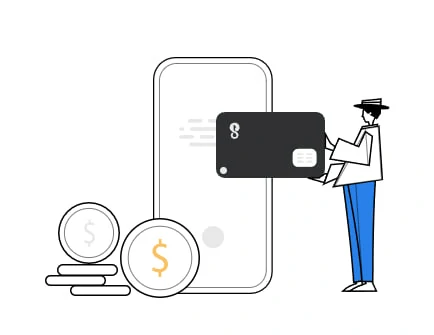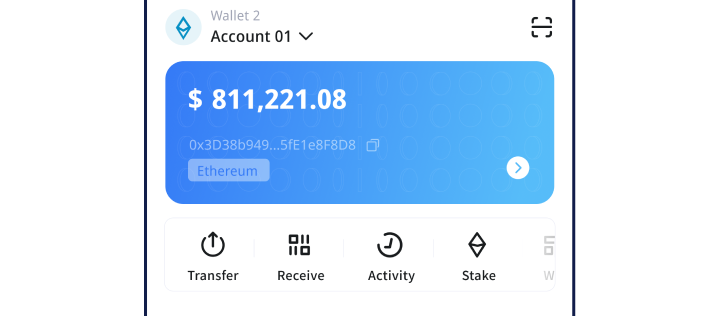# Adding Custom Tokens to Trust Wallet
Trust Wallet is a widely-used decentralized cryptocurrency wallet that enables users to store various cryptocurrencies securely. One of the wallet’s standout features is its ability to support custom tokens. This article will explore the process of adding custom tokens to Trust Wallet, including the reasons behind the need for custom tokens, step-by-step instructions, and the potential risks involved.
## Understanding Custom Tokens
Custom tokens refer to any cryptocurrency or digital asset that is not inherently included in the wallet’s default list. These tokens can be created on various blockchain platforms, the most common being Ethereum, Binance Smart Chain, and others. Custom tokens often represent various projects in the decentralized finance (DeFi) space, utility tokens, and tokens for specific applications within ecosystems.
### Why Spend Time Adding Custom Tokens?
Typically, users may want to add custom tokens for reasons such as participating in new crypto projects, accessing specific services or features, or simply tracking their portfolio in a user-friendly manner. The DeFi landscape is vast, and countless projects emerge daily; some require users to hold or interact with their native tokens for functionalities such as staking, governance, or accessing exclusive features.
### The Importance of Token Standards
Most custom tokens abide by specific standards. For instance, Ethereum-based tokens usually follow the ERC-20 or ERC-721 standards, defining how the tokens function on the Ethereum network. Similarly, Binance Smart Chain tokens can follow BEP-20 standards. Understanding these standards is crucial for recognizing the compatibility of tokens with various wallets and platforms.
## Step-by-Step Guide to Adding Custom Tokens on Trust Wallet
Adding custom tokens in Trust Wallet is a straightforward process that requires a few simple steps. Here’s a detailed guide:
### Step 1: Open Trust Wallet
First, ensure Trust Wallet is downloaded and installed on your device. Launch the app and log in if prompted.
### Step 2: Access the “Tokens” Tab
Upon logging in, you’ll be directed to the main wallet screen. Here, navigate to the “Tokens” tab, where all your current tokens are listed.
### Step 3: Tap on the “+” Icon
On the top right corner of the “Tokens” page, you should see a “+” icon. Tapping on this icon will allow you to add new tokens to your wallet.
### Step 4: Select “Add Custom Token”
Once you tap the “+”, you will see a list of tokens from the default selections. Scroll down to find and select “Add Custom Token.” This option will enable you to input the necessary details for your new token.
### Step 5: Choose the Blockchain Network
Trust Wallet supports various blockchain networks. You’ll need to select the appropriate network for your custom token (e.g., Ethereum, Binance Smart Chain).

### Step 6: Enter Token Details
To successfully add a custom token, you must input the relevant details:
– **Contract Address**: This is the unique address where the token is deployed on the blockchain. You can usually find this on the project’s official website or token information platforms like Etherscan or BscScan.
– **Token Name**: This is the name of the token.
– **Symbol**: The token’s symbol, which is often a three or four-letter abbreviation.
– **Decimals**: The decimal places define the smallest unit of your token. Most ERC-20 tokens use 18 decimals.
### Step 7: Save the Token
After entering the required information, double-check to ensure accuracy, especially the contract address, as an incorrect address may lead to losses or complexities. Once verified, tap on the “Done” or “Save” button.
### Step 8: Verify Token Addition
Once you have added the custom token, return to the “Tokens” tab, and you should see your newly added token appearing in your wallet.
## Visualizing Your Custom Token
After successfully adding the custom token, Trust Wallet enables you to view your token balance, transaction history, and any relevant information. The wallet interface is user-friendly, allowing for easy management of your assets.
## Potential Risks Associated with Custom Tokens

While adding custom tokens to Trust Wallet is relatively safe, it does come with inherent risks. Understanding these risks is crucial for responsible token management.
### Scams and Fraudulent Tokens
The cryptocurrency space is rife with scams, where malicious actors create fake tokens that appear legitimate. In some cases, users may invest in these tokens, hoping to see gains, only to realize that they have fallen victim to a scam. It is imperative to conduct thorough research on any token before adding it to your wallet, including examining the project’s history, community engagement, and verifying the contract address.
### Volatility Risks
The value of custom tokens can be highly volatile, especially with new projects. While investing in newer tokens can yield substantial returns, it can also result in significant losses. Investors should be prepared for rapid fluctuations in token value.
### Lack of Support and Information
Custom tokens may not come with the same level of support or documentation as more established cryptocurrencies. Thus, users may find it challenging to get assistance or extract useful information about the token, including security updates or protocol changes.
## Best Practices for Managing Custom Tokens
To mitigate the risks associated with custom tokens, consider the following best practices:
### Do Your Research
Always thoroughly research a token before adding it to your wallet. Seek to understand the project’s objectives, consult community forums, and verify the legitimacy of the team behind the token.
### Utilize Reputable Sources
When looking for contract addresses or information, only rely on official sources or reputable cryptocurrency tracking platforms. Always double-check the contract address by visiting the project’s official website.
### Maintain Security Measures
Keeping your wallet secure is paramount. Use strong passwords, enable two-factor authentication, and never share your private keys or seed phrases with anyone.
### Diversify Your Portfolio
To minimize risks, diversify your cryptocurrency holdings. Investing in various tokens can help balance your overall portfolio and reduce exposure to any single asset’s volatility.
### Keep Abreast of Market Trends
The crypto market is dynamic and rapidly changing. Keeping an eye on market trends, project developments, and community sentiments can aid in informed decision-making regarding your custom tokens.
## Conclusion
Adding custom tokens to Trust Wallet is a simple yet vital process for individuals looking to engage with the expanding landscape of cryptocurrencies and blockchain projects. By following the steps outlined in this article and observing best practices, users can enhance their cryptocurrency portfolios and access a broader range of assets. However, caution is advised, as the landscape carries risks, including fraudulent tokens and volatility.
As the DeFi ecosystem continues to grow and evolve, Trust Wallet’s capability to manage custom tokens positions it as a versatile tool for crypto enthusiasts and investors alike. By leveraging this functionality, users can engage with the burgeoning decentralized economy while keeping their assets secure and accessible.







